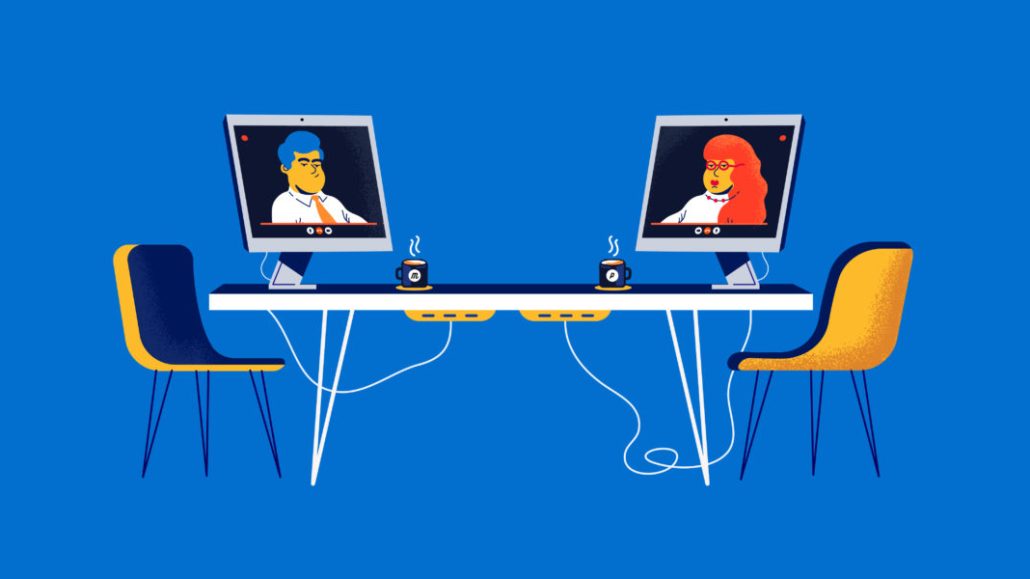Secure your place at the Digiday Media Buying Summit in Nashville, March 2-4
‘A tale of two cities’: The coronavirus is creating a barbell effect for publishers’ ad sales

The coronavirus is causing many publishers to experience of bifurcation of their ad sales that’s led to an evaporation of the mid-sized deal.
Many large digital publishers are finding the bulk of their deal flow is smaller deals. There are still the big fish to land with wide-ranging campaigns, according to CROs at four different publishers. What’s missing: the $100,000 to $300,000 deals that serve as a lot of large publisher’s bread and butter
“It’s a tale of two cities here,” said the CRO at one large digital publisher. “It’s ‘We’re going to spend a couple hundred grand,’ or ‘We’re going to spend several million.’ I don’t see anything in the middle.”
A second CRO at a slightly smaller digital publisher said they’d observed a similar dynamic, where most of the deals their sales force was closing were either small, display-focused deals, often for about $50,000, or multi-platform branded content campaigns worth closer to $500,000.
The net result is an advertising market that has gotten lumpier, with money coming in more fitfully, at a time when publishers’ advertising businesses are under significant pressure.
This trend had begun to emerge before the coronavirus began spreading, said Stephani Estes, svp and media director at the media agency Cramer-Krasselt.
But many byproducts of the virus’s spread have accelerated it. For example, sudden shocks to the supply chain in March, followed by changes in consumer sentiment, economic news and public health guidelines have put advertisers in a position where they feel like they need to move fast.
“For a lot of our clients, one of the things that’s been important has been agility and speed to market,” Estes said.
That interest in speed has also put pressure on the more expensive projects.
“Those custom content, bigger multi-level platform deals still very much have a place in the ecosystem,” Estes said. “But most of our clients right now aren’t necessarily looking at those with the same eyes as they were before March.”
Many of the programs that fit into those intermediate price ranges, which might include some branded content, or activating at a live event, typically involve some kind of spending that a marketer might not be able to neatly tie to business results. At a moment when cashflow is so important, that is a difficult, if not impossible sell.
“Marketers have a harder time taking risks these days,” said David Tucker, the head of strategy at media agency Swellshark. “If they can’t prove to the financial managers who run every company that they’re going to get a positive return on investment, they [the managers] are just not going to unlock the funds.”
Publishers have responded to the new dynamic in different ways. Barstool Sports CRO Deirdre Lester, for example, told Digiday this month that her team was focused on bringing on new advertisers, even if those new clients were only going to be spending a modest amount of money.
Others have focused more on getting more revenue out of categories that have resumed their spending, or on trying to work more closely with brands they have established relationships with.
The second CRO quoted in this story said that over the past two months, their team had noticed fewer RFPs coming in the door; in some weeks the volume of RFPs dropped by close to 50%. But during that same period of time, their sales team’s close rate has improved, a trend they see as evidence that brands and agencies are retreating to positions of safety.
“People know who they want to work with and they’re going straight to them,” that CRO said.
More in Media

From feeds to streets: How mega influencer Haley Baylee is diversifying beyond platform algorithms
Kalil is partnering with LinkNYC to take her social media content into the real world and the streets of NYC.

‘A brand trip’: How the creator economy showed up at this year’s Super Bowl
Super Bowl 2026 had more on-the-ground brand activations and creator participation than ever, showcasing how it’s become a massive IRL moment for the creator economy.

Media Briefing: Turning scraped content into paid assets — Amazon and Microsoft build AI marketplaces
Amazon plans an AI content marketplace to join Microsoft’s efforts and pay publishers — but it relies on AI com stop scraping for free.





